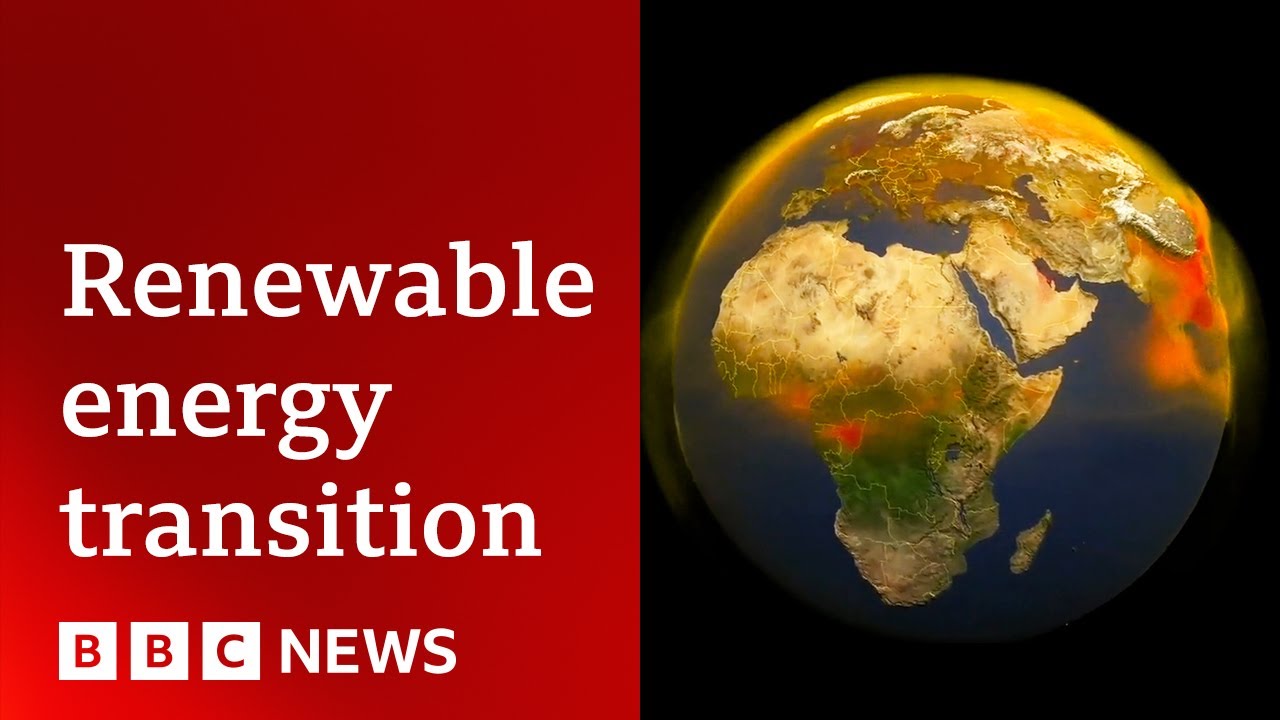
Introduction to Renewable Energy Innovations
The world is experiencing a significant shift towards renewable energy sources as a solution to combat climate change and reduce reliance on fossil fuels. Innovations in this sector are not just about technology; they also encompass new business models, policies, and practices that are transforming the energy landscape. This article will explore the latest trends, innovations, and the benefits associated with renewable energy, particularly focusing on solar, wind, and other sustainable energy sources.
Current Innovations in Renewable Energy
Solar Energy Advancements
Solar energy has seen a remarkable evolution over the past decade. Key innovations include:
- Photovoltaic Cell Efficiency: New materials, such as perovskite, have the potential to enhance the efficiency of solar cells significantly.
- Solar Storage Solutions: Innovations in battery technology, such as lithium-silicon batteries, are improving energy storage capacity and longevity.
- Building-Integrated Photovoltaics (BIPV): This technology integrates solar panels into building materials, providing an aesthetic and functional solution.
- Floating Solar Farms: Utilizing water bodies for solar panel installation to reduce land use and improve efficiency.
Wind Energy Developments
Wind energy is another area where significant advancements are being made. These include:
- Offshore Wind Farms: Innovations in turbine design and installation techniques are allowing for larger, more efficient turbines in offshore locations.
- Vertical Axis Wind Turbines (VAWT): These designs are becoming more popular due to their ability to capture wind from any direction.
- Smart Wind Farms: Integration of IoT (Internet of Things) for real-time monitoring and optimization of wind energy production.
Emerging Technologies in Renewable Energy
Beyond solar and wind, other renewable technologies are emerging as crucial components of the energy mix:
- Hydrogen Fuel Cells: Green hydrogen produced from renewable sources is gaining traction as a clean fuel alternative.
- Geothermal Energy Innovations: Enhanced geothermal systems (EGS) are being developed to extract energy from deeper underground sources.
- Biomass Energy Solutions: Innovations in converting waste materials into energy are becoming more efficient and sustainable.
Trends Shaping the Future of Renewable Energy
Decentralization of Energy Production
The trend towards decentralization is reshaping how energy is produced and consumed. This shift includes:
- Community Solar Projects: Allowing neighborhoods to invest in shared solar installations, making renewable energy accessible to more people.
- Microgrids: Localized grids that can operate independently from the main grid, enhancing energy resilience and security.
- Peer-to-Peer Energy Trading: Blockchain technology enables individuals to trade surplus energy with one another, fostering community engagement.
Increased Energy Efficiency
Energy efficiency is becoming a critical component of sustainability efforts. Key trends include:
- Smart Homes: The integration of smart technologies to optimize energy consumption and reduce waste.
- Energy-Efficient Appliances: Innovations in appliance design and manufacturing that promote lower energy use.
- Building Retrofits: Upgrading existing structures with energy-efficient materials and technologies to reduce overall energy consumption.
Government Policies and Incentives
Government action plays a pivotal role in the advancement of renewable energy. Current trends include:
- Subsidies and Tax Incentives: Financial support for renewable energy projects encourages investment and development.
- Renewable Portfolio Standards (RPS): Regulations that require utilities to obtain a certain percentage of their energy from renewable sources.
- International Agreements: Global commitments to reduce carbon emissions, such as the Paris Agreement, are pushing countries to adopt renewable energy.
Benefits of Embracing Renewable Energy
Environmental Benefits
One of the most significant advantages of renewable energy is its positive impact on the environment. This includes:
- Reduction of Greenhouse Gas Emissions: Transitioning to renewables helps lower carbon emissions, mitigating climate change.
- Improved Air Quality: Renewable energy sources produce little to no air pollutants, contributing to cleaner air and better public health.
- Biodiversity Preservation: By reducing reliance on fossil fuels, renewable energy helps protect ecosystems and wildlife habitats.
Economic Advantages
Renewable energy also offers numerous economic benefits, such as:
- Job Creation: The renewable energy sector is labor-intensive, creating millions of jobs worldwide.
- Energy Independence: Reducing reliance on imported fuels enhances national security and economic stability.
- Cost Savings: The decreasing cost of renewable technologies leads to lower energy bills for consumers and businesses.
Social and Community Benefits
Communities that embrace renewable energy experience various social advantages, including:
- Energy Access: Renewable energy can provide electricity to remote and underserved communities, improving quality of life.
- Community Engagement: Local renewable energy projects foster community involvement and cooperation.
- Public Health Improvements: Cleaner energy sources lead to fewer health issues associated with pollution, benefiting community health.
Challenges to Overcome in the Transition to Renewable Energy
Technological Barriers
While the potential for renewable energy is immense, several technological barriers still need to be addressed:
- Energy Storage: Current battery technologies need further development to store energy efficiently for longer periods.
- Grid Integration: Upgrading the electrical grid to accommodate distributed energy resources is crucial for maximizing renewable energy use.
- Intermittency Issues: The variable nature of solar and wind energy necessitates reliable backup solutions.
Economic and Policy Challenges
Economic and policy challenges also pose significant hurdles, including:
- Initial Investment Costs: High upfront costs for renewable energy projects can deter investment.
- Policy Uncertainty: Inconsistent regulations and government support can hinder long-term planning and investment.
- Market Competition: Fossil fuels often receive more subsidies and support, making it challenging for renewables to compete.
Conclusion: A Sustainable Future Awaits
In conclusion, the innovations, trends, and benefits of renewable energy paint a promising picture for a sustainable future. As technology continues to advance and public awareness grows, the transition to renewable energy sources is not just a possibility—it is an imperative. By overcoming the challenges and embracing the opportunities presented by renewable energy, we can pave the way for a cleaner, more sustainable, and economically viable future for generations to come. The road ahead may be complex, but the rewards of innovation and commitment to renewable energy are worth the effort.

